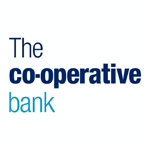Professional and Career Development Loans guide
Did you take out a Career Development Loan back when they still existed? Here's everything you need to know about paying it back.

Back when they were still around, Professional and Career Development Loans could give students up to £10,000. This loan remained interest-free while students studied on a course, postgraduate qualification or training programme.
Sadly, in January 2019, the government scrapped the scheme, so the loans are no longer available.
But this doesn't affect any existing loans that were taken out. If you're looking for information about the terms and conditions of repayment, you're in the right place.
What's in this guide?
What are Career Development Loans?
Professional and Career Development Loans were bank loans designed to fund any courses or training that would help progress your career or help you to get into work.
The funding differed from a personal loan because as long as you were still studying, you wouldn't pay any interest on the loan. This used to be paid for by the Government Skills Funding Agency instead (now called Education and Skills Funding Agency).
In fact, the government funding extends slightly beyond the end of your course. You'll only start repaying the loan (with interest) from one month after you finish studying, when you should be in a position to start paying it back.
You decided how much money you wanted to apply for (between £300 and £10,000), with the funding going towards course fees, living costs or other learning expenses.
Do you know what the average graduate salary for your degree is?
Alternatives to the Career Development Loan

That's all very well and good. But now that this funding has been scrapped, what other options are there? Here's a quick list of possible replacements for the Career Development Loan:
- Take out a Postgraduate, Doctoral or part-time Student Loan instead.
- Look for student bursaries to cover the course fees. There are loads of different charities and organisations which do this, so research thoroughly.
- Ask your employer to sponsor you, if the course will benefit the company.
- Look into doing a degree apprenticeship – usually, you'll be working 80% of the time while the remaining 20% is spent at uni. On top of that, your employer covers the fees and pays you a salary.
- Study part-time and continue working to help cover costs.
- Take some time out to work and save up the money you need.
These options might not be available to everybody, but they're worth looking into as every loan comes with risks. You could end up paying some hefty interest charges depending on how long you take to pay it all back.
Repaying a Career Development Loan
When you applied for your Career Development Loan, you would also have set your repayment terms. This essentially means how much you pay back each month over how long a period of time. You can repay your loan over one to five years, or in a single lump sum.
Spreading your repayments over a longer period of time may mean you're paying less each month, but you'll end up repaying more in the long run as you'll accumulate more interest.
Unlike standard Student Loan repayments, we'd recommend paying off a loan like this as quickly as you can before the interest stacks up.
However, don't stretch yourself too far. Make sure you'll be able to meet your monthly repayments. If they're too high and you're unable to pay them, this will affect your credit rating.
The Co-operative Bank

The Co-operative Bank was the only provider of Professional and Career Development Loans, offering an interest rate of 9.9% representative APR. This is the interest rate you're likely to pay over the course of the agreement including any extra costs.
This table gives you a better idea of how much interest you'll be paying, depending on how long you take to pay back the loan:
| Loan amount | Representative APR | Repayment period | Monthly repayment | Total repayment |
|---|---|---|---|---|
| £500 | 9.9% | 12 months | £43.84 | £526.04 |
| £5,000 | 9.9% | 36 months | £160.11 | £5,764.02 |
| £10,000 | 9.9% | 60 months | £209.91 | £12,594.46 |
You may be able to find a personal loan with a better interest rate elsewhere. In this case, you could take out a loan with a lower interest rate to repay the Career Development Loan, and then pay back the new loan with smaller interest charges.
However, all loans come with risks. We would strongly advise against taking out additional loans without fully researching your options and the consequences of doing so first, including the early repayment conditions on your Career Development Loan.
Don't forget that you'll still have to repay your loan if you drop out of the course, or the course provider goes out of business.
Can you repay early?
You are able to pay your loan off early if you'd like to, but you might still face some charges.
The Co-operative Bank currently stipulates that if you agreed to repay your loan in one year or less, you'll be charged 28 days' interest if you decide to repay early.
If you agreed to repay your loan over more than a year, you'll be charged 58 days' interest if you repay early.
Fancy a career change? Here are some awesome careers you can start with any degree.








